ACMSA 2015
Keynote Speakers
1.Prof. Huang Haijun (Beihang University, Director of Institute of graduate, China)
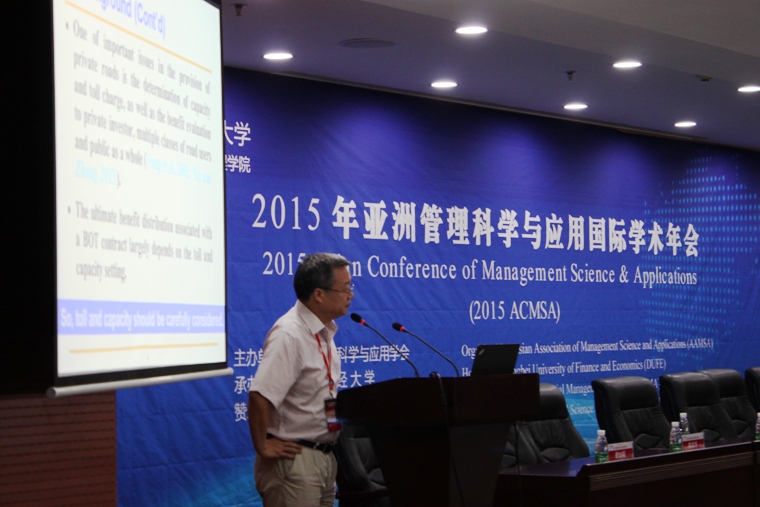
Hai-Jun Huang is the Cheng Kong professor of the Beijing University of Aeronautics and Astronautics (BUAA). He is now the executive associate dean of the BUAA’s Graduate School and had served as the dean of the School of Economics and Management. From 2000 to 2004, he was the vice director of the Department of Management Sciences, National Natural Science Foundation of China. He received his Ph.D in transport operations research from BUAA in 1992. His research interests include road traffic flow models, transport network modeling, travel behavior analysis and congested road-use pricing. He has published more than 140 papers in such international journals as Transportation Research (Part A, Part B, Part C, Part E), Operations Research, Transportation Science, JORS, EJOR, N&SE, Physical Review E, Physical A, Networks and Spatial Economics, Journal of Transport Economics and Policy, Journal of Advanced Transportation and etc. He co-authored the book “Mathematical and Economic Theory of Road Pricing” published by Elsevier in 2005. In 1998, he got the National Excellent Young Researcher Grant, China. He is now on the editorial boards of more than 15 journals, including Transportation Research Part B, JAT, Transportmetrica, Transportation Letters/ The International Journal of Transportation Research, Journal of Transportation Systems Engineering and Information Technology, Journal of Systems Engineering Theory and Practice. From 2011, he has became a member of the International Advisory Committee, ISTTT. He is now the vice presidents of the China Systems Engineering Society, the China Society of Management Science and Engineering, the China Society of OM/OR/ME. Now he is leading a ‘973’ project of the National Basic Research Program, as the PI.
Title: Benefit distribution of private toll road: a cumulative prospect theory model with heterogeneous users
Abstract: This talk is based on a paper coauthored with Li-Jun Tian of Fuzhou University. We examine how capacity and toll choices of the Build-Operate-Transfer mode affect the benefit distribution among private sector, road users and public under the framework of cumulative prospect theory. In the proposed network equilibrium model, we divide all road users into several classes differentiated by their valuation of travel time, and let the class-specific travel demand be endogenous. Our numerical results show that the benefit distribution is indeed influenced by the travelers’ risk preference parameters significantly. Thus, administrators should carefully consider the travelers’ risk attitude and their heterogeneity before determining whether or not to employ the Build-Operate-Transfer mode.
2.Prof. Hideki Nakahara(Tokyo City University, Japan)
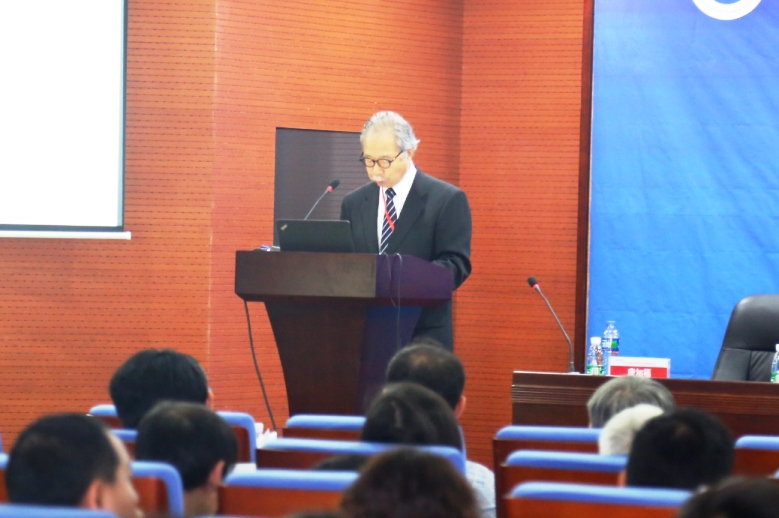
Hideki Nakahara is the professor of the Department of Environmental Management, Faculty of Environment and professor of the Graduate School at the Tokyo City University in Japan. He has obtained his bachelor’s degree in Business Administration from Aoyama Gakuin University in 1974. He is accredited in consumer citizenship education and environmental education, and the subjects of his current research are Sustainable Consumption and the Quality of Life. His major publications include Ethical Consumption, Wither Human Ecology, Sharing the World, Eco-label and Green Marketing. He formally served as President of the Academy of Sustainable Management and Chairman of the Green Purchasing Network (GPN) in Japan, he now chairs the International Green Purchasing Network (IGPN).
Title: Sustainable Consumption & Green Wash
Abstract: Everyone’s heard the expression “whitewashing”. It is defined as “a coordinated attempt to hide unpleasant facts, especially in a political context”. Green washing is on the same premise but in an environmental context. It is green washing when a company or organization spends more time and money claiming to be “green” through advertising and marketing than actually implementing business practices that minimize the environmental impact. It’s whitewashing but with a green brush. Green washing is an enemy of GPP/SPP. A classic example is an energy company that runs a campaign touting a “green” technology they’re working on when, in fact, the “green” technology represents only a sliver of the company’s otherwise not-so-green business or may be marketed on the heels of oil spills or plant explosions.
3.Prof. Gursel Suer (Ohio University, USA)
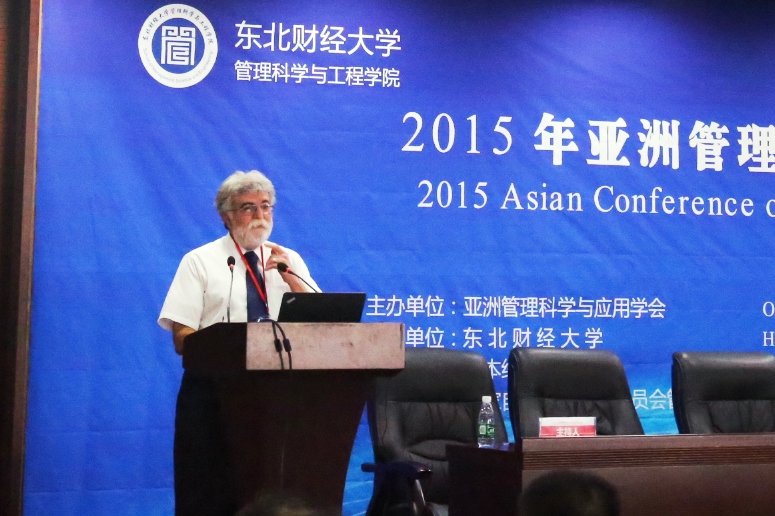
Gursel A. Suer joined the Industrial and Systems Engineering Department at Ohio University after working 12 years at the University of Puerto Rico-Mayaguez. He is on the editorial board of various journals. Currently he serves as the manufacturing area editor of the Computers and the Industrial Engineering Journal. He has co-chaired two Computers and Industrial Engineering Conferences (1997-Puerto Rico, 2005-Istanbul). He also initiated Group Technology/Cellular Manufacturing Conferences held in 2000-Puerto Rico, 2003-Ohio, 2006-Netherlands, 2009-Japan. Most of his research has been motivated by his projects and observations in industrial settings. He has edited seven conference proceedings and three special issues with different journals. He has published more than 110 papers in journals, edited books, conference proceedings and made more than 100 technical presentataions. He also advised more than 40 graduate students.
Title: A Hierarchical Approach for a Global Manufacturing Firm: From Operational Decisions to Layered Global Supply Design Issues
Abstract: In this talk, we will analyze a jewelry manufacturing company and discuss many interrelated projects/issues. We will start with the 1) operational issues such as line balancing; multiple manning, operator sharing, skill-based manpower allocation, learning and forgetting; product sequencing to achieve different objectives such as minimizing manpower transfers, minimizing makespan, minimizing number of machines; synchronized flow, and sequencing decisions in synchronized cells. Later, the talk will focus on 2) tactical issues such as master scheduling, Schedule-Based MRP, knowledge-based master scheduling, cell loading, family sequencing/scheduling. Scheduling and capacity planning interactions will be explored at this level in terms of overtime decisions, manpower levels, and number of cells. In the next level, 3) the talk will focus on strategic decisions where manufacturing system issues will be analyzed considering capacity-driven layered cellular design and hybrid manufacturing design including clustering, focusing, and family formation. Layered cellular design consists of dedicated, shared and remainder cells. Hybrid manufacturing system design focuses on identifying product lines, process layout and layered cellular design. The very recent study of identifying clusters based on both classical processing similarity and the newly proposed demand variability similarity will be introduced. The objective is to separate stable and unstable processes and products to be able to create smoother operations. In the next phase, 4) the discussion will shift to global supply chain design for the same company. Layered cellular design concepts are used in each manufacturing plant. Supplier selection issues will be briefly addressed. Business competition strategies will be stressed as a future direction to design global supply chains. Finally, 5) the layered cellular design concept will be expanded to layered supply chain design where certain plants will have simpler and more efficient cells whereas others will be running more complex product mixes with more complicated cell structures.
4.Prof. Youhua Chen (City University of Hong Kong, China)
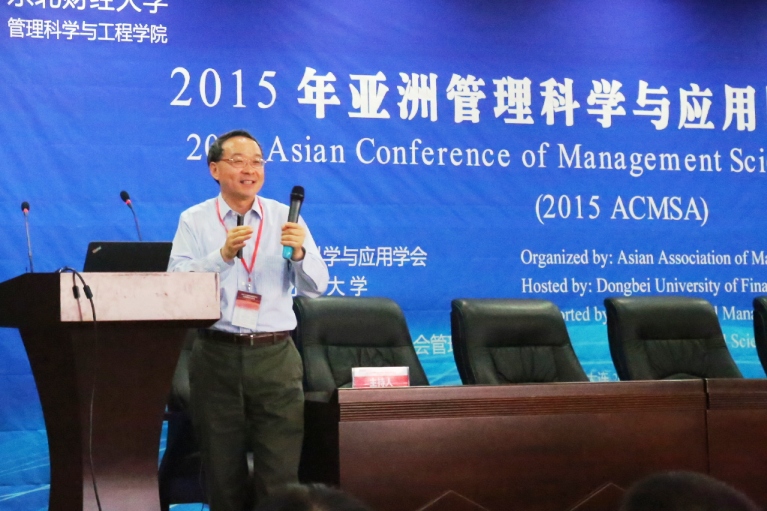
Youhua (Frank) Chen [陳友華] is the Professor of Management Sciences at City University of Hong Kong. He holds a bachelor degree in Engineering, master degree in Economics, and doctoral degree in Management from Tsinghua University (Beijing), the University of Waterloo, and the University of Toronto, respectively. After finishing his PhD, he went to Northwestern University as a post-doc fellow (9/1996-6/1997). Prior to joining City University of Hong Kong, Prof. Chen was on the faculty of NUS Business School, National University of Singapore (7/1997-6/2001) and the Department of Systems Engineering and Engineering Management, the Chinese University of Hong Kong (2001-2012), as Assistant Professor and Associate Professor, respectively. Courses which Prof. Chen taught in NUS include Operations Management and Supply Chain Management, at both undergraduate and MBA levels. He was also actively involved in executive teaching (EDP and EMBA). At CUHK, he taught Logistics and Supply Chain Management, and served as the deputy director and director for the Executive Master of Science Program (EMSc) in Logistics and Supply Chain Management, a joint program with Tsinghua University (Shenzhen). Prof. Chen has also been involved in consulting projects in the area of supply chain management and logistics.
Title: On Advance Booking of Semi-urgent and Stable Out-patients
Abstract: In this talk, we present an on-going project on an advance-scheduling problem that is motivated by the booking of specialist outpatient services at the Ambulatory Care Center of a major Hong Kong public hospital. The Center is a specialist out-patient clinic with 12 specialties including Medicine, Orthopaedics & Traumatology, and Cardiothoracic Surgery. Under each specialty, there may be multiple subspecialties; e.g., Orthopaedics & Traumatology provides several subspecialties such as Foot & Ankle and Joint. The Center only accepts advance-booked patients. New patients are referred by community or other clinics and subsequent patients are follow-up cases. They are classified into two types: stable and semi-urgent, based on a triage procedure. For each subspecialty, the Hong Kong Hospital Authority which governs all public hospitals sets a specific deadline for semi-urgent patients to be seen by doctors; e.g., for semi-urgent Foot & Ankle patients, the deadline is 6 weeks. However, there is no specific deadline for stable patients (whereas urgent patients are directly handled and treated by the Emergency Department). We explore the optimal booking properties and develop heuristics. Then, we use actual data to verify the effectiveness of those heuristics.
This is a Joint work with LIU Xing, QI Jin and ZHU Han.
5.Prof. Melvyn Sim (Business School of National University of Singapore (NUS), Singapore)
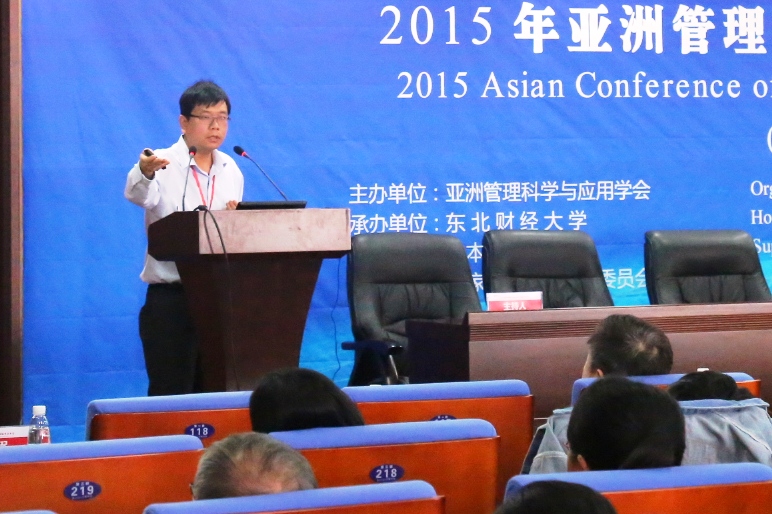
Melvyn Sim is the professor of Department of Decision Sciences, Business School of National University of Singapore (NUS). He is now the Deputy Director of NUS Global Asian Institute. He received his Ph.D in operations research from Massachusetts Institute of Technology in 2004. He’s current research interesting are on Optimization under Uncertainty – Robust Optimization, Decisions under Uncertainty – Risk and Satisficing Measures, Modeling and Optimization of Operations/Supply chains, Financial Risk Management and Portfolio Optimization, Engineering Control and Optimization.
Title: Routing Optimization Under Uncertainty
Abstract: Abstract: We consider a class of routing optimization problems under uncertainty in which all decisions are made before the uncertainty is realized. The objective is to obtain optimal routing solutions that would, as much as possible, adhere to a set of specied requirements after the uncertainty is realized. These problems including an optimal routing solution to meet the soft time window requirements at a subset of nodes when the travel time is uncertain, and sending multiple capacitated vehicles to different nodes to meet the customers’ uncertain demands. We introduce a precise mathematical framework for defining and solving such routing problems. In particular, we propose a new decision criterion, called the Requirements Violation (RV) Index, which quantifies the risk associated with the violation of requirements taking into account both the frequency of violations and their magnitudes whenever they occur. The criterion can handle instances when probability distributions are known, and ambiguity, when distributions are partially characterized through descriptive statistics such as moments information. We develop practically efficient algorithms involving Benders decomposition to nd the exact optimal routing solution in which the RVIndex criterion is minimized, and give numerical results from several computational studies that show the attractive performance of the solutions.
This is joint work with Jin Qi (HKUST) and Patrick Jaillet (MIT).





